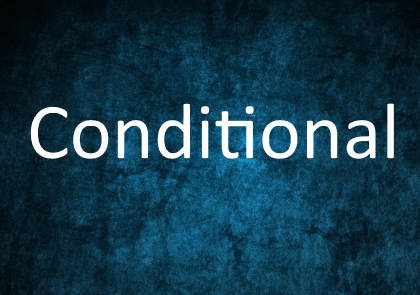Conditional tenses are used to speculate about what could happen, what might have happened, and what we wish would happen. In English, most sentences using the conditional contain the word if. Many conditional forms in English are used in sentences that include verbs in one of the past tenses. This usage is referred to as "the unreal past" because we use a past tense but we are not actually referring to something that happened in the past. There are five main ways of constructing conditional sentences in English. In all cases, these sentences are made up of an if clause and a main clause. In many negative conditional sentences, there is an equivalent sentence construction using "unless" instead of "if".
| Conditional sentence type | Usage | If clause verb tense | Main clause verb tense |
|---|---|---|---|
| Zero | General truths | Simple present | Simple present |
| Type 1 | A possible condition and its probable result | Simple present | Simple future |
| Type 2 | A hypothetical condition and its probable result | Simple past | Present conditional or Present continuous conditional |
| Type 3 | An unreal past condition and its probable result in the past | Past perfect | Perfect conditional |
| Mixed type | An unreal past condition and its probable result in the present | Past perfect | Present contditional |


